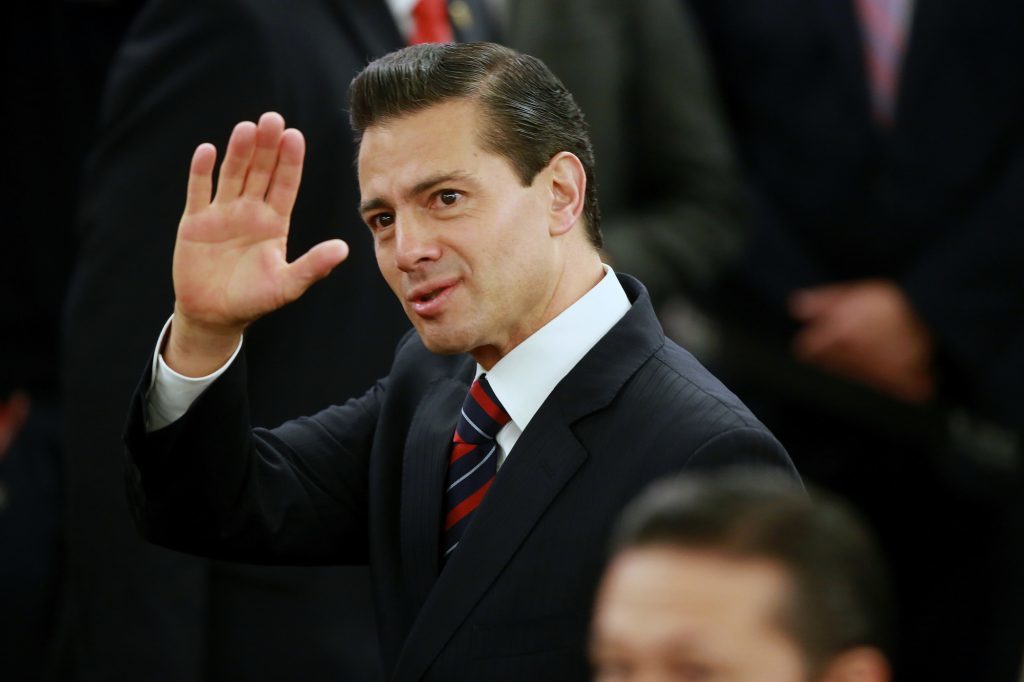
Mexico is trying to lure as much oil investment as possible before the president who overhauled the country’s energy industry leaves.
By the end of the summer, the country that until recently had a state monopoly on crude will have offered more than 100 permits to oil majors like Exxon Mobil Corp. in three auctions this year. The last bidding round, announced on Wednesday, will cover an area bigger than Delaware.
The pace of sales is unprecedented as the country prepares to say goodbye to the presidency of President Enrique Pena Nieto, who oversaw a complete makeover of the country’s energy laws to lure foreign investment into everything from oil fields to pipelines to refineries.
An election in July could alter the course of the enormous transformation as Mexicans choose who will succeed Pena Nieto in December, with a candidate that has pledged to review the energy reforms leading the polls.
For now, oil giants including Exxon, BP Plc and Chevron Corp. are set to invest tens of billions of dollars in the country after winning exploration and production licenses in previous auctions. And they are lining up to bid for more.
“The rounds transcend the electoral cycles,” Energy Minister Pedro Joaquin Coldwell said today at the presentation of the onshore auction plans in Mexico City. The oil auctions “exclusively comply with the energy policy that Mexico demands and will continue to demand in the future.”
Biggest Auction
The auction on July 25 will offer 37 onshore oil and natural gas development areas, the most since the government ended the state monopoly in 2013, according to the National Hydrocarbons Commission on Wednesday. It will follow an offering of 29 deep-water fields scheduled for Jan. 31, and 35 shallow-water areas up for grabs on March 27.
The onshore auction, which will be the tenth during the current administration, will cover more than 9,500 square kilometers (3,700 square miles) of territory and is one of the country’s most ambitious to date, Aldo Flores, Deputy Energy Minister, said Wednesday in Mexico City.
Given that many of the fields have preexisting infrastructure and drilled wells, some of the areas could net crude or gas production “almost immediately,” Nestor Martinez, a member of the hydrocarbons commission, said on a webcast.
Presidential Race
The bidding round will also be the first to be held after the presidential election. In a poll conducted by Consulta Mitofsky and published by newspaper El Economista on Jan. 17, opposition candidate Andres Manuel Lopez Obrador, who has promised to revise energy and oil contracts awarded during the current administration, led electoral preference with 23.6 percent. Jose Antonio Meade, of the ruling PRI party, polled third with 18.2 percent.
Coldwell added that the opening of the energy industry has required “a monumental effort” to halt and reverse the country’s declining oil industry and competitiveness. To date, Mexico has awarded 69 new oil contracts but it will still require an additional $640 billion in investment by 2040 to return crude production to its 2004 peak of 3.4 million barrels a day, he said.
Development of the onshore fields will require investment of approximately $89 million per area, Coldwell said. Winning bidders will receive license contracts of up to 40 years to develop the areas, he said.
Recommended for you
